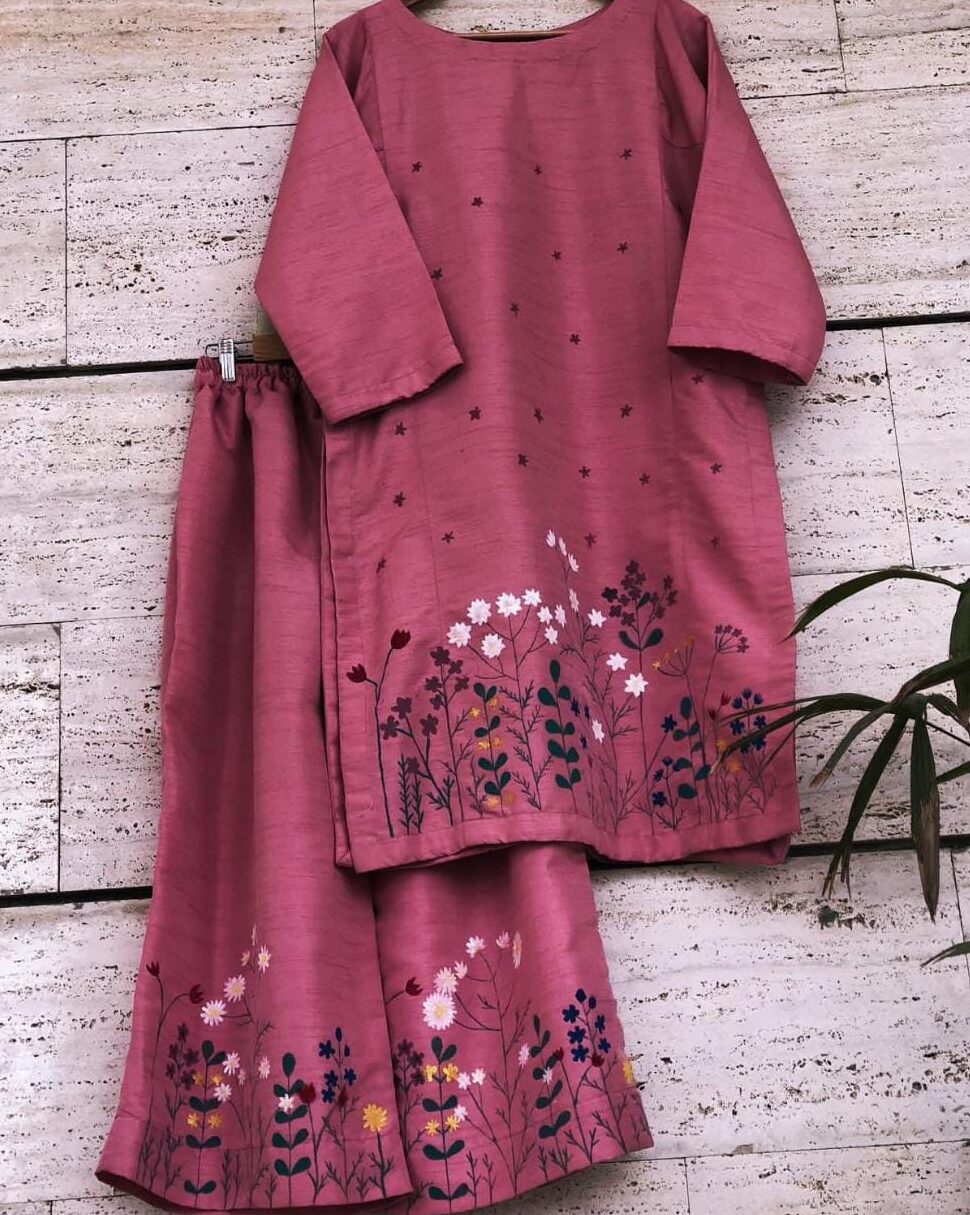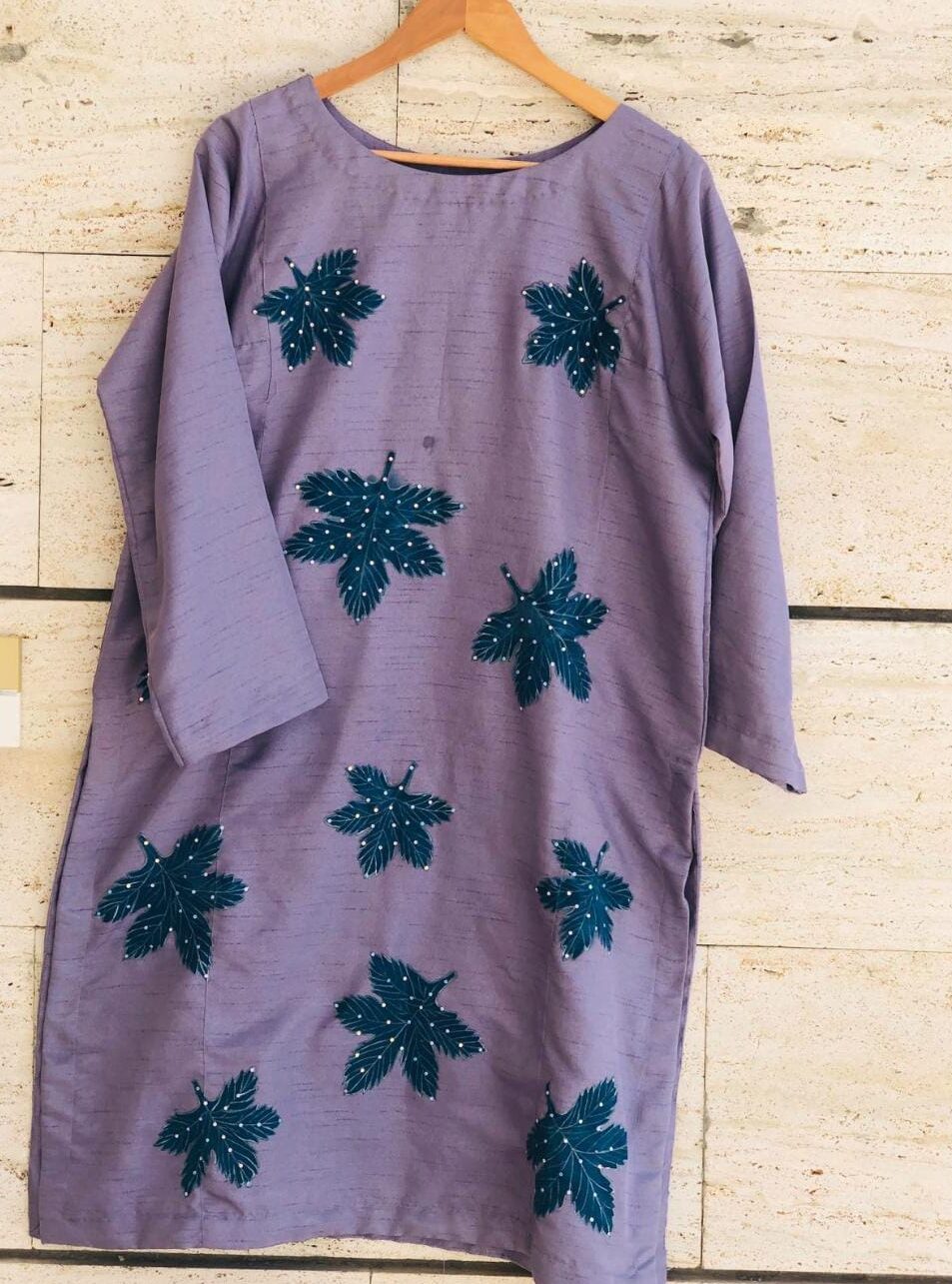Loralai’s Village Girls Find Hope, Opportunity in E-Commerce
Tahira Khan
Loralai: “It is more convenient for us to paint on fabric for customized orders than to stitch a suit or sell it in different shops. Initially, we also considered hand-painted shoulder bags and shoes, but vibrant clothing is more popular among teenage girls,” Nargis Syed explained in an interview with PenPK.
Nargis Syed and Lyma Nasar are two talented young women living in separate villages, Bawar and Khanki, near the Loralai district in Balochistan.
They have successfully turned their passion for art into a thriving online business. Initially, both girls showcased their skills through paintings and sketches.
A mutual friend suggested they start an online store offering hand-painted, customized clothing to earn a living.
They began working on their idea in 2022 with a modest budget of 15,000 rupees. Initially, even their families doubted their venture, considering it a waste of time. However, over time, their idea blossomed into a small-scale online business.
They have now engaged other girls in their village, creating a supportive community and expanding their enterprise.
“Progressively, the confidence of our family and friends in our set-up has been restored. We are now engaging other skilled girls in the village, especially those with embroidery skills,” Nargis further explained. Living in remote areas can be daunting for women’s empowerment, severely impacting their social and economic opportunities.
Living in remote areas can be daunting for women’s empowerment, severely impacting their social and economic opportunities.
Besides being disconnected from the world, these far-flung areas also have limited connectivity within the province. Poor infrastructural development has hindered the growth and scale of women’s entrepreneurship.
As a result, many valuable products, whether food, embroidery, or hand-painted clothing, do not receive the recognition and value they deserve.
Regarding these challenges, Nargis remarked, “We have to order every essential item via online platforms, whether it is paint or fabric. These items are then collected by our male family members from the TCS office.”
“Since we do not live in a metropolitan area, we cannot order supplies at wholesale rates. We have to purchase essentials for embroidery, paint, and fabric from various online sources, which are sometimes of subpar quality. The cash-on-delivery forms are overly complicated, further hampering the sales of our clothing brand,” Nargis shared.
She also lamented the limited literacy among consumers. In many areas of Balochistan, customer illiteracy makes it difficult for people to understand English, which complicates placing orders online.
Moreover, there is still a need to spread awareness about communication technology and the safety of privacy.
There are even more challenges to add to the list. E-commerce setups in remote areas lack proper electronic commerce infrastructure. For an online business to grow exponentially, it needs to evolve with market trends, customer preferences, and technological advancements.
Apart from IT infrastructure, there are regulatory and legal framework issues as well. In Balochistan, the legal framework for commercial transactions was developed before the advent of the cyber world. The province needs to work on areas such as e-signatures and e-commerce to support this growth.
Despite numerous challenges, e-commerce is on a progressive path. Online business setups have revolutionized how people conduct business in inaccessible locations. Thanks to social media platforms like X, YouTube, Instagram, and TikTok, entrepreneurs can now establish online shops, creating viable commercial spaces for empowering women and girls from humble backgrounds.
Technological advancements have significantly boosted e-commerce, influencing consumer preferences and expanding access to markets. Mobile commerce has particularly thrived as tablets and smartphones become more accessible, even in remote areas. As a result, many young entrepreneurs have showcased their products on social media platforms. For instance, a young female journalist from Khuzdar used X, Instagram, and YouTube to advertise small-scale Balochi embroidery setups, enabling her to earn a living remotely.
As a result, many young entrepreneurs have showcased their products on social media platforms. For instance, a young female journalist from Khuzdar used X, Instagram, and YouTube to advertise small-scale Balochi embroidery setups, enabling her to earn a living remotely.
It’s remarkable that young girls are gaining financial independence, breaking free from the poverty that has plagued the province for decades.
Online business setups have empowered young female entrepreneurs in multiple ways. They can earn online without having to sell their artwork door-to-door. Moreover, this revenue generation has eased the financial burden on their parents, who are also working hard to meet the needs of their families.
In Nargis’s words, “This online setup is not only a source of revenue generation but has also boosted my self-esteem.”
It is important to note that the online embroidery business can be challenging at times. The dresses are expensive and take countless days to prepare.
Additionally, intricate details of the texture and fabric quality can enhance the piece, making it special and visually appealing. However, the e-commerce setup is not limited to costly handmade embroidery.
It also includes hand-painted textiles and jewelry, which are especially popular among girls during festive occasions like Eid.
Tahira Khan is a freelance journalist specializing in Gender-Based Violence and climate education.

Comments are closed.